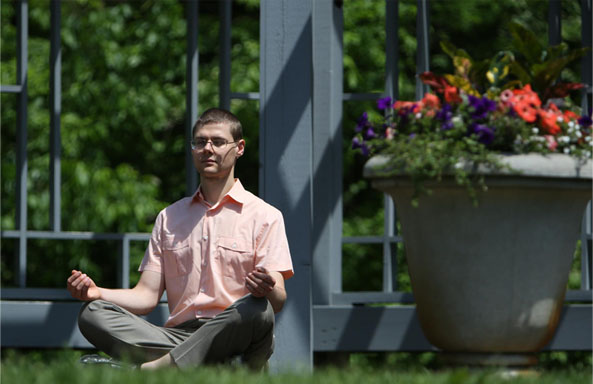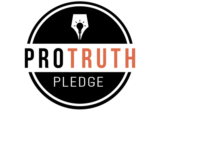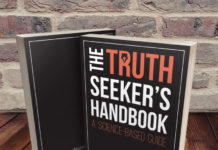
Imagine your body singing with joy and awe from the deepest core of your being to your very fingertips as you experience a rich and deep sense of purpose and meaning. In your heart and mind, you are experiencing a state of transcendent confidence about your place in the world and your purpose for being here. With that personal sense of life meaning, you feel fully connected to every part of yourself, to all other people, and to the natural world and even universe as a whole. This is my experience, and that of others, as we meditate on our sense of purpose and meaning in life.
Now, why care about meaning and purpose?
Certainly, there are other ways of getting a sense of awe, transcendence, and joy. However, plenty of research shows the benefits of gaining a rich and deep sense of meaning and purpose for our mental and physical health and well-being. So, how do we not lose out on these benefits?
The traditional sources for meaning and purpose come from cultural heritage and religion, yet these sources do not work well for many people.
Fortunately, science shows that the key is simply to gain a sense of life purpose and meaning. The source of this sense is not important. Recent studies illustrate that there are many other ways to cultivate that personal sense of meaning and purpose that do not depend on heritage or religion, such as self-reflection.
Meditation is one great, intentional approach to introspection and self-understanding, in order to develop a deep sense of meaning and purpose.

The author meditating in an empty classroom at the Ohio State University, where he is a professor. Photo credit: Jessica Phelps/The Newark Advocate
The growing scientific literature on meditation shows its benefits in a wide variety of areas. For example, Dr. Jon Kabat-Zinn, the most prominent figure in the field of meditation research, has discussed of meditation for alleviating pain, dealing with stress, and addressing a wide variety of other physical health concerns. Meditation also improves social and emotional well-being, as well as catalyzes our body and mind’s internal resources for both healing and development. Cognitive neuroscience suggests that forms of meditation that include visualization are particularly promising for mental and physical well-being improvements. Kabat-Zinn insisted on the usefulness of meditation for finding one’s life purpose by meditating on our personal vision of what is most important in life.
Yet isn’t meditation itself a religious practice?
That’s a question asked by many people wary of religiously-oriented approaches to big life questions such as meaning and purpose. Certainly, meditation has been traditionally practiced in religious contexts, especially in Eastern religions. Yet, in the last few decades, non-religious forms of meditation have taken off and continue to spread. Due to the work of Kabat-Zinn and many other medical professionals, meditation is practiced widely in hospitals and other medical settings. Even the US army is integrating meditation into its arsenal. Prominent secular notables, such as Greta Christina, Sam Harris, and Mark W. Gura have written about their experiences. I myself have helped lead and organize a meditation group at the Humanist Community of Central Ohio called Rational Mindfulness, where secular folks get together monthly for evidence-based meditation practices.
So how can you practice such meditation and gain these benefits?
First, sit or lie in a comfortable position, whatever you prefer. Then, close your eyes and take several deep breaths to center yourself and calm your mind. Next, envision what it would be like to feel transcendent confidence about your personal sense of life purpose at the very core of your being in the center of your chest, and let yourself bask in the joy and awe of that experience. Then imagine that sense of awe and joy spreading from the very core of your being slowly outward – through your chest, your head, your feet, and through your very fingertips. If your mind wanders, bring it back to focusing on your body calmly and peacefully.
With that sense of purpose and meaning about your place in the world, let that experience flow out from your fingertips and connect you to every other person on Earth, to the natural world, and to the universe itself. Next, focus on reflecting on that sense of meaning and purpose, and notice what associations rise up in your mind as you do so. Contemplate, without judging, these associations, whatever they might be. Remember these is no absolute right answer, each of us has to develop a personal sense of meaning and purpose. Don’t feel that these associations have to be clear and concrete, developing a personal sense of meaning and purpose takes time.
Hold these associations in your mind as you slowly draw back from the universe, from the natural world, from other people, and back within yourself. Now take several deep breaths, and open your eyes. I suggest you then journal about your experience and what kind of associations you had during your meditation, as that will help you gain clarity about your personal sense of meaning and purpose and your place in the world.
Questions to Consider:
• Have you gained any insights about meditation or meaning and purpose after reading this article?
• Has reading this article lead you to take specific steps to gain greater meaning and purpose through meditation? If so, what are those steps? What might be the barriers to such steps, and how will you deal with such barriers?
• What kind of additional benefits have you gained from reading this article and how will your life be better off, if in any way?
P.S. For additional resources on a science-based approach to finding meaning and purpose, check out this free workbook endorsed by Dr. Richard Carrier, Dr. Bob Bhaerman, and other scholars and secular activists; use this free science-based web app to evaluate your current sense of meaning and purpose; and also consider the wide variety of others resources on meaning and purpose available at Intentional Insights. –




